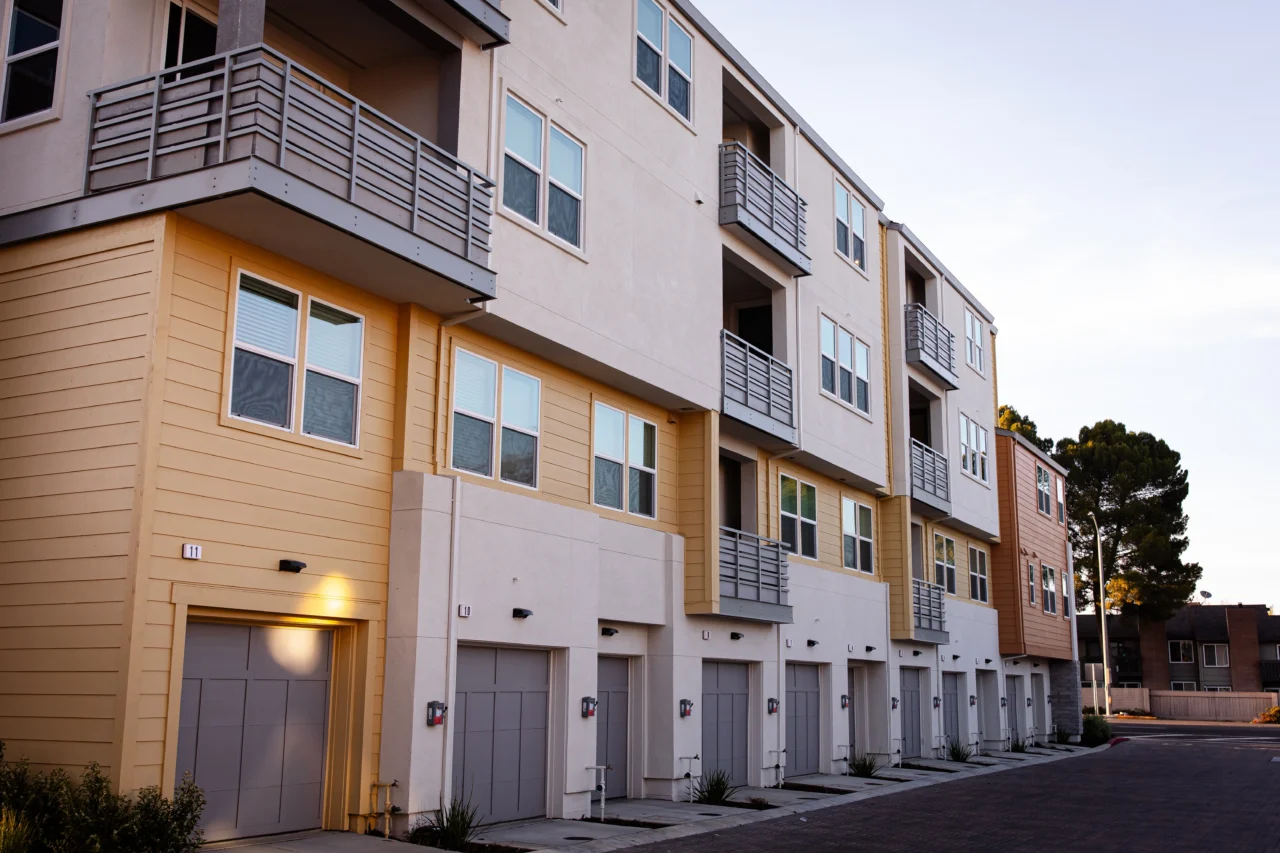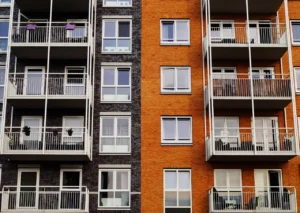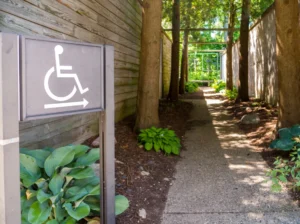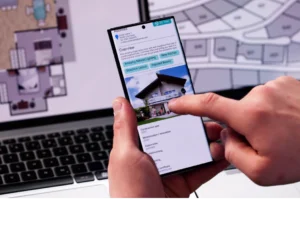
Everything You Need to Know About Apartment Management in 2025
Apartment management demands a careful balance of tenant satisfaction, building upkeep, financial control, and regulatory compliance. Apartment managers that want to stay profitable have to pick and choose their investments carefully and couple them with strategies that make the most out of their team’s resources.
Whether you manage a 12-unit building or a portfolio across multiple zip codes, that’s a tall order. Luckily, the same principles apply: keep units occupied, tenants engaged, operations running efficiently, and finances under control.
This guide covers what you need to know about leasing, communication, maintenance, budgeting, staffing, compliance, technology, and growth strategies. Each section pulls highlights from our expansive collection of apartment management resources and includes links to further reading that goes into more detail. You’ll walk away with practical ways to move forward through the rest of year and into the next.
Leasing and Occupancy Strategies for Apartment Management
A strong leasing process underpins your entire business. Renters expect fast responses, flexible scheduling, and clear communication. Online listings should feature high-quality photos, virtual tours, and concise descriptions of unit features and amenities.
In competitive markets, use pre-leasing strategies. Start marketing units before tenants move out to reduce vacancy time. Automate showing schedules and apply prescreening questionnaires to qualify prospects quickly.
Stay informed about local rent trends, leasing cycles, and tenant preferences. Use market benchmarks to keep your rates competitive and profitable.
Tenant retention begins when the lease is signed. Send welcome messages, offer move-in packages, and check in personally within the first month to build trust and reduce turnover.
Proactive leasing improves occupancy, lowers marketing costs, and builds a stronger reputation in your market.
Tenant Communication and Retention for Apartment Management
Tenant satisfaction stems from timely communication and follow through. Renters want quick updates, multiple ways to get in touch, and responses that reflect empathy and reliability.
Use digital tools such as tenant portals, SMS platforms, or messaging apps to keep renters informed about maintenance, building updates, rent changes, or policy shifts. Communicate with clarity and consistency, regardless of the platform.
Send reminders for rent payments, deliver policy notices in advance, and share service updates in respectful language. Keep tenants engaged with quarterly newsletters that highlight upgrades, offer seasonal tips, and remind them of shared responsibilities.
Simple gestures go a long way—handwritten thank-you notes after renewals or small holiday gifts show that you value the relationship. Conduct exit surveys to learn from past tenants and improve operations.
Satisfied tenants renew leases, refer new renters, and require fewer interventions—leading to lower turnover costs and more predictable revenue.
Get a Free Multifamily Loan Quote
Access Non-Recourse, 10+ Year Fixed, 30-Year Amortization
Maintenance Operations and Seasonal Upkeep for Apartment Management
Reliable maintenance keeps properties safe, attractive, and fully operational. Avoid relying solely on reactive fixes. Build a proactive seasonal schedule to stay ahead of costly breakdowns:
- Spring: Service HVAC units, clear gutters, inspect landscaping and irrigation systems.
- Summer: Clean AC coils, inspect roofs, address pest activity.
- Fall: Prepare heating systems, test alarms, weatherproof doors and windows.
- Winter: Manage snow removal, check for ice buildup, monitor boiler performance.
Standardize unit inspections to identify recurring issues early. Use work order software to track requests, monitor turnaround times, and evaluate technician efficiency.
Partner with licensed plumbers, electricians, and HVAC professionals. Set clear service expectations through written agreements. Measure vendor performance to inform future hiring decisions.
Maintain a detailed repair log for every unit and system. This documentation supports budgeting, improves planning, and helps resolve tenant disputes.
Routine maintenance extends asset life, protects revenue, and builds tenant trust.
Financial Oversight and Budgeting for Apartment Management
Strong financial management involves tracking income while keeping expenses under control. Rent collection supports revenue, but every dollar counts when budgeting for fluctuating costs, long-term projects, and reserve funding.
Create a detailed monthly budget covering maintenance, staffing, utilities, marketing, taxes, insurance, and office operations. Compare actual spending against projections each month and adjust as needed.
Plan for long-term capital expenses—such as roof replacements, HVAC upgrades, and exterior improvements—using a multi-year outlook. Maintain reserves and factor in depreciation to avoid funding gaps.
Address late rent with clear and respectful policies. Set written guidelines for grace periods, late fees, and notices to pay or vacate. Offer payment plans where permitted to recover missed rent.
Use reports such as rent rolls, profit and loss statements, and budget variance summaries to assess property performance. These insights help you make smart decisions about rent increases, staffing adjustments, and maintenance priorities.
Smart financial planning supports stable operations and long-term profitability.
Staff, Contractors, and Vendor Management for Apartment Management
Efficient operations rely on a dependable team and responsive service providers. Define responsibilities for office managers, leasing agents, maintenance staff, and cleaning crews. Provide training and evaluate performance regularly.
Hire contractors using written agreements that outline scope, pricing, and timelines. Verify licenses and insurance before work begins. Replace underperforming vendors quickly to avoid service delays.
Outsource technical or specialized tasks—such as pest control, elevator maintenance, or fire system inspections—to certified professionals. Handle everyday requests in-house to manage costs.
Build a strong network of reliable vendors. Consistent service relationships save time, reduce emergency repair costs, and help with bulk pricing or loyalty discounts.
Train staff on customer service, emergency response, and compliance basics. Empower team members to make small decisions quickly to prevent bottlenecks.
Your staff and vendors shape tenant experience and property performance. Invest in people who share your standards.
Compliance and Risk Mitigation for Apartment Management
Property managers have to stay current with local, state, and federal housing regulations and property management law. Focus areas include fair housing compliance, building codes, lease laws, and safety standards. It’s always a good idea to consult a legal professional for the most direct, complete, and up-to-date advice, but, as a start, keep these principles in mind:
Display required signage throughout the property—emergency contacts, elevator certifications, smoke-free notices, and equal housing opportunity statements. Regularly inspect shared spaces and units to maintain habitability.
Keep thorough records of tenant communication, repairs, inspections, and lease documentation. These records offer protection during legal disputes or audits.
Review lease templates annually to stay compliant. Double-check security deposit handling, notice requirements, and renewal terms for accuracy.
Conduct staff training on fair housing rules, anti-discrimination policies, emergency procedures, and tenant rights. Use case studies to reinforce learning.
Work closely with your insurance agent to confirm coverage for liability, property damage, rent loss, and legal defense. Reassess policies annually or after major changes.
Staying compliant helps prevent costly penalties, lawsuits, and damage to your professional reputation.
Technology and Automation for Apartment Management
Efficient apartment management isn’t possible in 2025 without digital tools that make processes more efficient, tenant services more impressive, and growth strategies more successful
Property management software such as Buildium has features that automate some of the most time-consuming tasks you have to wrestle with every day. Here are just a few examples of what this looks like in action:
- Online rent payments that post directly to your accounting system
- Maintenance ticketing that alerts staff and tracks response times
- Digital leasing tools that allow remote applications and e-signatures
- Resident portals where tenants submit requests, pay rent, or contact management
- Performance dashboards to monitor occupancy, expenses, and maintenance trends
Building out a tech stack and automating specific workflows takes some time and planning. Luckily, we have additional resources for that below.
Be sure to factor in the staff training that comes with introducing new systems and avoid tech fatigue by rolling out features gradually and explaining the value behind each one.
Growth Strategies and Portfolio Scalability for Apartment Management
Whether adding buildings, partnering with investors, or expanding into third-party management, growth requires systems that scale.
Start by documenting your standard operating procedures for leasing, maintenance, communication, and finances. Use templates and training materials to replicate success across new properties.
Centralize back-office tasks such as accounting, compliance, and marketing. Consider hiring specialists to handle growth areas—such as acquisitions, investor reporting, or brand development.
Be strategic when evaluating new properties and clients. Focus on assets that align with your strengths and areas that you can effectively take on given your resources and tech stack.
Monitor key metrics like occupancy, net operating income, average days vacant, and repair resolution times. Use these benchmarks to evaluate readiness for expansion and identify underperforming areas.
Growth also brings more risk and responsibility. Consult attorneys and CPAs to structure deals, protect your assets, and optimize taxes.
Scaling up requires discipline, but the payoff is greater income potential and stronger market influence.
Putting Your Apartment Management Strategy into Action
To chart a course for success in apartment management you’ll need a few things.
First, you’ll need knowledge of the job and how to do it well. This guide helps lay that foundation, but also be sure that you build out a strong network and have certifications that can further hone your skills and give you an edge.
Next, you’ll need to stay up to date on the latest changes in the industry. Our 2025 Property Management Industry Report is a great place to start. Supplement trusted reports with research into local trends and rapidly evolving technologies such as AI.
To put your knowledge into action, you’ll want to invest in the right apartment management software that:
-
Makes your current operations more efficient and frees you up to focus on strategic, human-centric tasks that add the most value to your brand
-
Enhances experiences for both tenants and the owners you work with, creating new revenue opportunities (think valuable service add-ons, owner benefit packages, and testimonials that help attract renters and clients)
-
Gives you the flexibility to customize workflows and introduce new tools as your business grows
Frequently Asked Questions
What is the best way to reduce apartment vacancies?
Start marketing units before they’re vacant, offer virtual tours, and streamline the application process. Focus on tenant retention by offering excellent service and clear communication.
How can I improve maintenance response times?
Use work order tracking software, train maintenance teams on response protocols, and schedule routine inspections to catch issues before they escalate.
What are common mistakes property managers make?
Waiting too long to address maintenance, failing to communicate with tenants, and underestimating the value of staff training are frequent issues.
How often should I review leases and compliance procedures?
At least once a year or after significant changes in local or state laws. Make updates with input from legal counsel if necessary.
Do I need property management software for a small portfolio?
Yes. Even small operations benefit from automation and centralized data, which free up your time and help deliver a better tenant experience.
Source: Buildium













 Accessibility
Accessibility